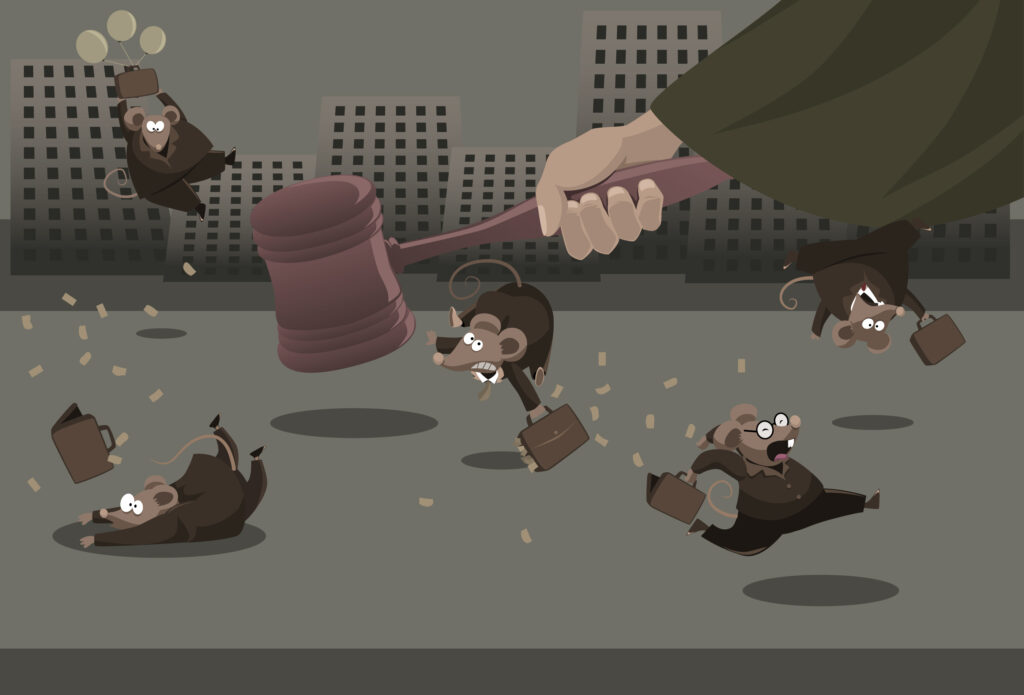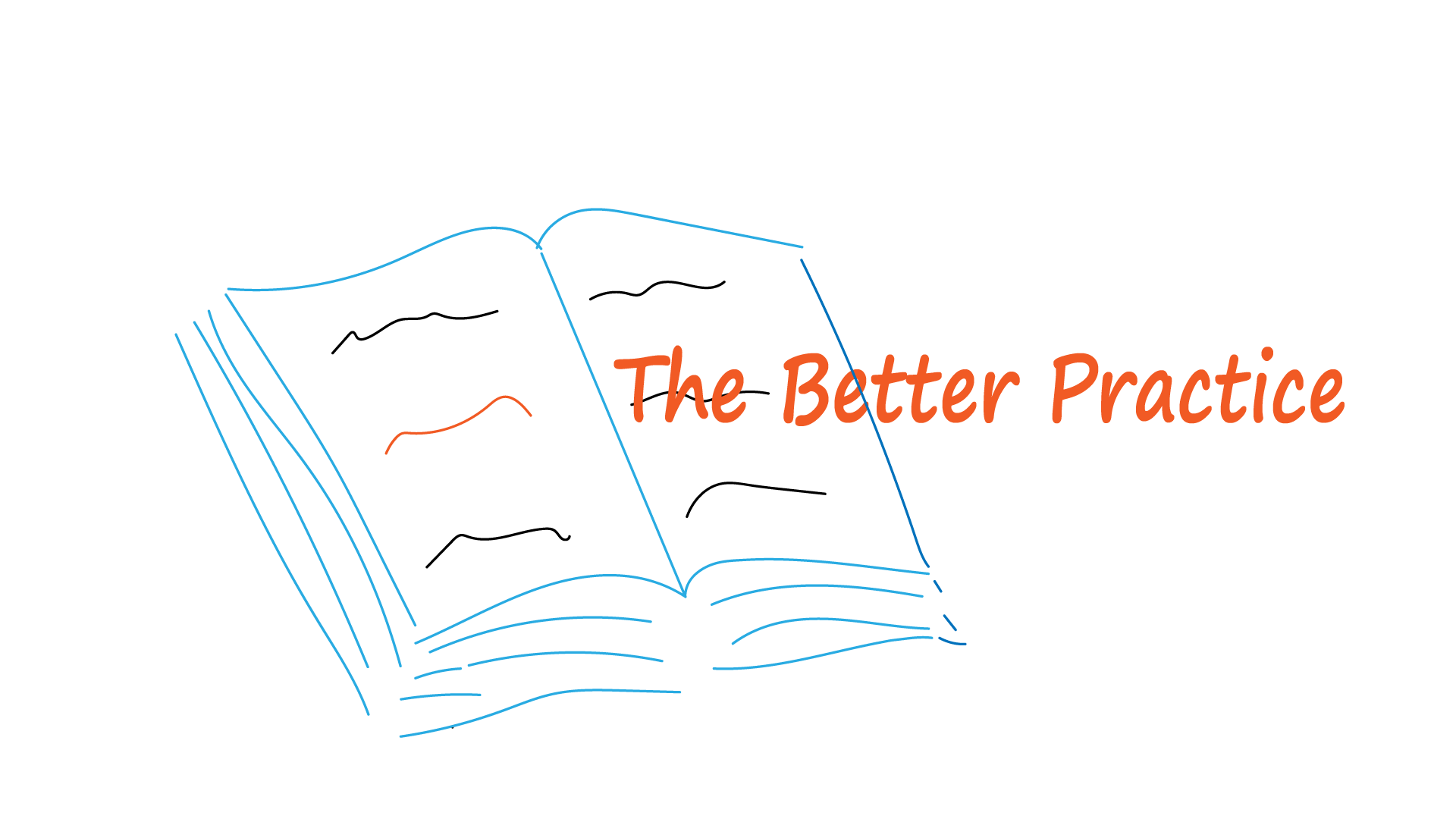Benched

*Real Scenario:
Assistant District Attorney: Judge, we would like to continue this matter to the next out of court administrative date for a status. We believe that to be January 3rd your, Honor.
Judge: Okay, Defense Attorney, would you like to be heard as to that date?
Defense Attorney: Yes, your Honor. We do not oppose a continuance but unfortunately, I have a conflict on January 3rd. I will be in Federal Court in a trial at that time. However, the Assistant District Attorney has informed me that they do not object to me, and my client being excused for this administrative out of court date as long as we are in communication with the State regarding the status of the case.
Judge: What says the State?
Assistant District Attorney: We have no objection, Judge.
Judge: Well, that is not okay with the Court. How about January 2nd?
Defense Attorney: My apologies, but I will be due in Federal Court and the Court in that matter has already rescheduled the case one time already. I fear I will not be available.
Judge: Your matter in Federal Court may be rescheduled again. Well, let’s just set it for that January 2nd date and see how that goes. Let the State call another case please.
I wanted to start this week’s post with a “dramatization” of a real-life exchange I once had in Court. In this real-life scenario, the Court purposefully (and with intention, I tell you) scheduled a matter for a date that I had reasonable cause to not be available for, and was not available for. I had a clear conflict. The Court purposefully scheduled a matter, for which I was counsel of record, for a date that I could not be present. Tough, huh? It’s not easy dealing with the bench sometimes. So, how do we navigate around these shark infested waters without catching a contempt charge or being reported to the Bar (that we know of)?

The working litigation attorney’s daily task of navigating these behaviors and attitudes emanating from the bench can be arduous, taxing and mentally exhausting. It’s fucking hard. Whether or not you have the benefit of getting along with most judges most of the time, it is inevitable that you will appear before a judge or Court that is inappropriate or outwardly hostile to you without reason. So, what in the hell do you? What in the hell can you do? I am not an expert, nor do I profess to be. However, I have always had a running list over the years of practices that have worked (or not worked) in how I have been able to deal with the most intractable (and sometimes outwardly racist) judge. Here are my thoughts:
1) Hustle to Get and Put EVERYTHING on the Record
The record is what is supposed to keep us all honest. So, when you are having a particularly questionable or acrimonious exchange with the Court, you need to ensure that it is all on the record. When exchanges are maintained on the record, the hope is, psychologically, that we all will take better care in what we say, how we say it and to whom we say it. Also, when things are on the record, they can be brought forth in times of disagreement as evidence of what you informed the Court and when. It also cuts down on the inappropriate bullying behavior. We all know and have experienced the Court trying to bully one side to do one thing or another for whatever reason. If that is going to occur, it needs to be done on the record so any appeals court (or judicial standards board) can see and read it for themselves. I know this can be hard when the Court is staring holes in the back of your head, but you have to have enough gumption to say that objection or statement of opposition on the record. Say it, say it very concisely and move on. Here is something I have said before: “ We hear and accept the Court’s decision, however, for the record, we respectfully object and ask the Court to take note of our objection.”
2) Accept that the Court May Have Inappropriate Motives
It is an absolute lie that every Judge and every Court treats everyone, regardless of background, fairly. That is bullshit and I challenge anyone to say anything different. There will be times when a judge or Court is ruling against you or treating you like a dog because of your gender, your race or because they think that you used to date their momma…who the hells knows. But when you find yourself in an exchange with the Court that all of a sudden feels like World War 3, you have to try and step back and realize that the Court may have an issue with you that you don’t have with it. When that happens, don’t even TRY to “win” that fight. Say the points you need to say concisely; get it out. Then, quietly sit down. If this is happening to you, what the Court/Judge is craving is that fight with you. It is assuming that you will retort in a totally inappropriate way that justifies the further mistreatment or worse, a contempt charge. Do your best to not fall into this scenario. You remain at all times professional and remember that you are not so invested in whatever the “issue” is that you let it color your judgment like the Court so candidly is letting it color theirs.
3) Be and Stay Prepared
Do the best that you can to be fully prepared for every court appearance, even the cursory ones. When you know your shit, it is harder for the Court to try and call you out on it. When you are prepared and have equipped yourself with the tools and knowledge to appear on whatever matter you are there for, the likelihood that you will pass whatever “test” the Court has for you increases. Also, in full candor, a lot of judges really get upset when you are NOT prepared, with good reason. For those poor souls that clearly fail to prepare for Court, you can often see those certain judges make short work of those attorneys. Don’t rely on the false premise that judges have been “there” and will have empathy for the busy litigator running from courthouse to courthouse just trying to make it. Some Judges have never had the real pleasure of being real hustling trial lawyers, so they just don’t know how it is for us, and what is worse, they just don’t care.
4) Don’t Give Up or Quit on Yourself
I often wonder when I am in a Court that clearly does not want me there nor think I should be there practicing, whether or not the treatment that I am getting is solely designed to induce me to throw in the towel. Just give up or go away. For some of the things I have endured, how can one not think this? I once had one of my most fervent and hostile opponent attorneys come up to me after an appearance in front of a particularly hostile and angry judge say to me that even THEY thought that I was getting treated unfairly and that the Court had some personal beef with me. I remember that day like it was yesterday. The Court’s ire and contempt for me was so palpable that even an attorney I did NOT get along with felt moved to lend me a reassuring word that it wasn’t really me; it was the Court. This experience reaffirmed for me that I would not slink away from practicing in front of this judge just because it was unpleasant. I earned my degree. I earned my license. I deserve to be there just like any other attorney who looks like me or doesn’t look like me for that matter.

5) They Expect a Fight….Don’t Give Them One
Some Courts will intentionally be provocative with attorneys. They will play with attorneys like kittens play with string. Don’t go down this path with these Courts. You need to engage in order to do your job, but you don’t need to stay longer at the party than other guests. In these instances, state concisely your objection or what you need to state for the record and sit the hell down. Yes, I know you want to expound and explain and give one humdinger of an argument. But in these instances, the Court has demonstrated to you that it doesn’t care. What value the Court sees is in toying with attorneys in front of it for its own pleasure. This happens people, so just stop thinking that it doesn’t. In these instances, cut the string perilously short no matter how bruised your pride may be. Preserve the record, sit down then leave when dismissed. If the Court wants a fight with you that day, let it be disappointed because you ain’t gonna give it to them.
6) Pull Out the Law
This point piggy backs on being prepared. Make sure that in front of these difficult Courts, most of what you are saying encompasses a statute number or a specific case cite; even for the most elementary of legal premises. When you adhere as closely as you can to actual case law and citation, you are not only prepared, you work to maintain the Court’s focus in a time where the Court may be losing focus for one reason or another. Read from the statutes and actually read from your case law. Make sure your argument is on track even when the Court can’t seem to get back on its own.

7) It’s Out of Your Hands
Remember that scenario from above? Somethings things are just out of your hands. If you know the rules and adhere to them, it will be hard for any Court to find fault with your actions or give you a hard time about it. There are rules that dictate what Courts take precedence over other Courts in terms of an attorney’s appearance. Follow the rule and keep it moving. Somethings are just out of your hands and even the most disagreeable Court cannot pierce the shield the rules and law give us for times like these.
This is a tough subject that I know carries a lot of controversy. I had some trepidation writing about it myself, but it was important enough for me to address because so many of us don’t talk about this subject for fear of retribution and retaliation. We fear what it will do to our reputations if we talk candidly about our adverse experiences with the Court or judges. We fear that when we appear again in front of these Courts that the Court will make our clients suffer and take out their ire on them. It is scary. However, we all need a better roadmap in how to deal with the bench when it gets tough. Because, the good attorneys will not stay in this practice if there is not a way to discuss this and navigate through these dangerous waters. There is a better practice to doing this and I hope that I am well on the road to finding it.
*Although this scenario is true, it is not a word for word quotation and some dates have been changed.
